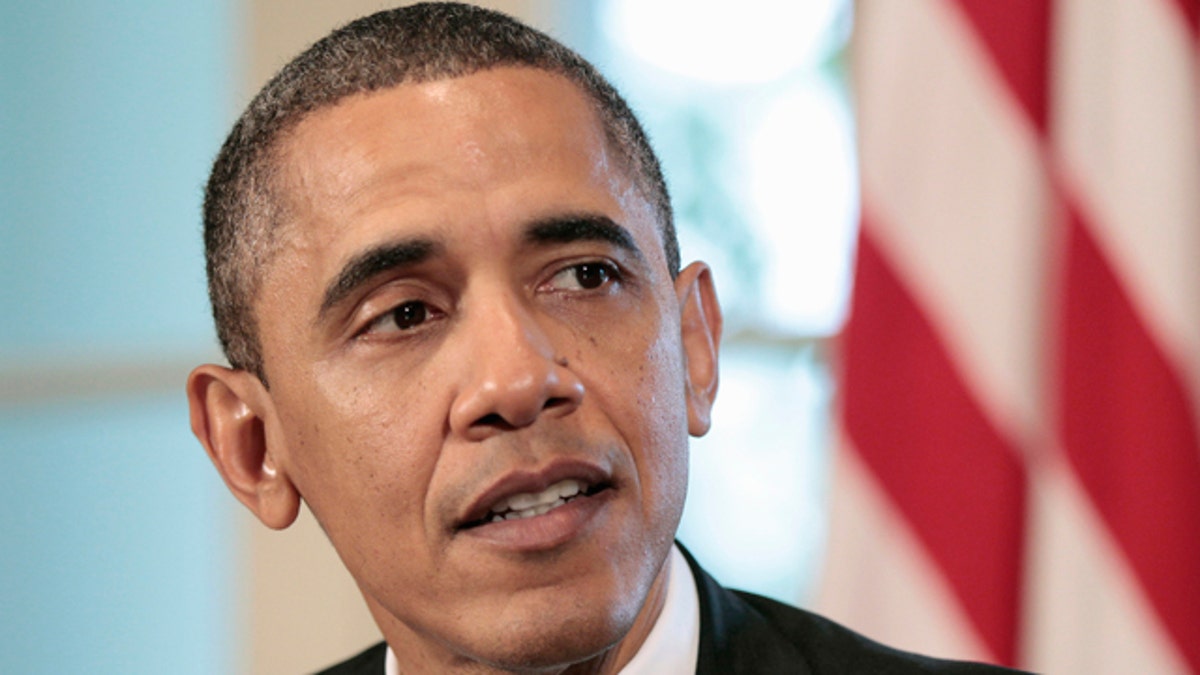
Aug. 3: President Obama speaks to members of the media during a Cabinet meeting in the Cabinet Room of the White House in Washington. (AP)
The U.S. debt surpassed 100 percent of gross domestic product after the government's debt ceiling was lifted, Treasury figures showed Wednesday, according to AFP.
The debt, which had been in somewhat of a holding pattern over the past several weeks, rose $238 billion after President Obama signed the debt-ceiling deal into law Tuesday to avoid the country's first-ever default.
The package is designed to carve $2.4 trillion from the deficit over the next decade. But in the near term, it granted Washington an increase in its borrowing authority worth the same amount.
With that authority, the public debt has climbed to $14.58 trillion, putting it just over the $14.53 trillion size of the country's economy in 2010.
As the country moves into a league with deep-in-the-red nations like Italy and Belgium, fiscal conservatives say the fight to cut spending is far from over.
Senate Minority Leader Mitch McConnell warned Tuesday that Washington will have another fierce debate over spending the next time the debt ceiling is reached -- expected to be in early 2013. McConnell said Washington should welcome, not fear, that debate.
Bipartisan lawmakers are also expected to get to work soon on a joint committee formed by the newly signed debt-ceiling deal. That committee is tasked with finding about $1.5 trillion in deficit savings, to complement the $900 billion in cuts enacted by the first phase of the bill.
The last time the debt topped the size of its annual economy was in 1947 during World War II, according to AFP. But the deficit at the time was driven by war spending -- a degree of spending that ebbed once the war ended. The nation's current deficits were exacerbated by the wars in Iraq and Afghanistan, but are also driven in large part by entitlement programs that will not shrink without fundamental changes to their structure -- officials point as well to lost revenue from the recession, tax breaks and increased domestic spending as contributors to the current deficit hole.
Raising the debt ceiling came hours before Treasury would face the risk of defaulting on the country's loans.
The contentious debate on Capitol Hill rattled Wall Street for more than a week, as the Dow slid for eight straight days before finishing up 29 points Wednesday.




